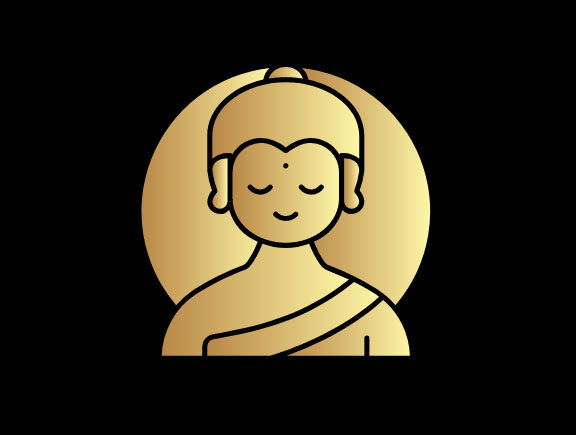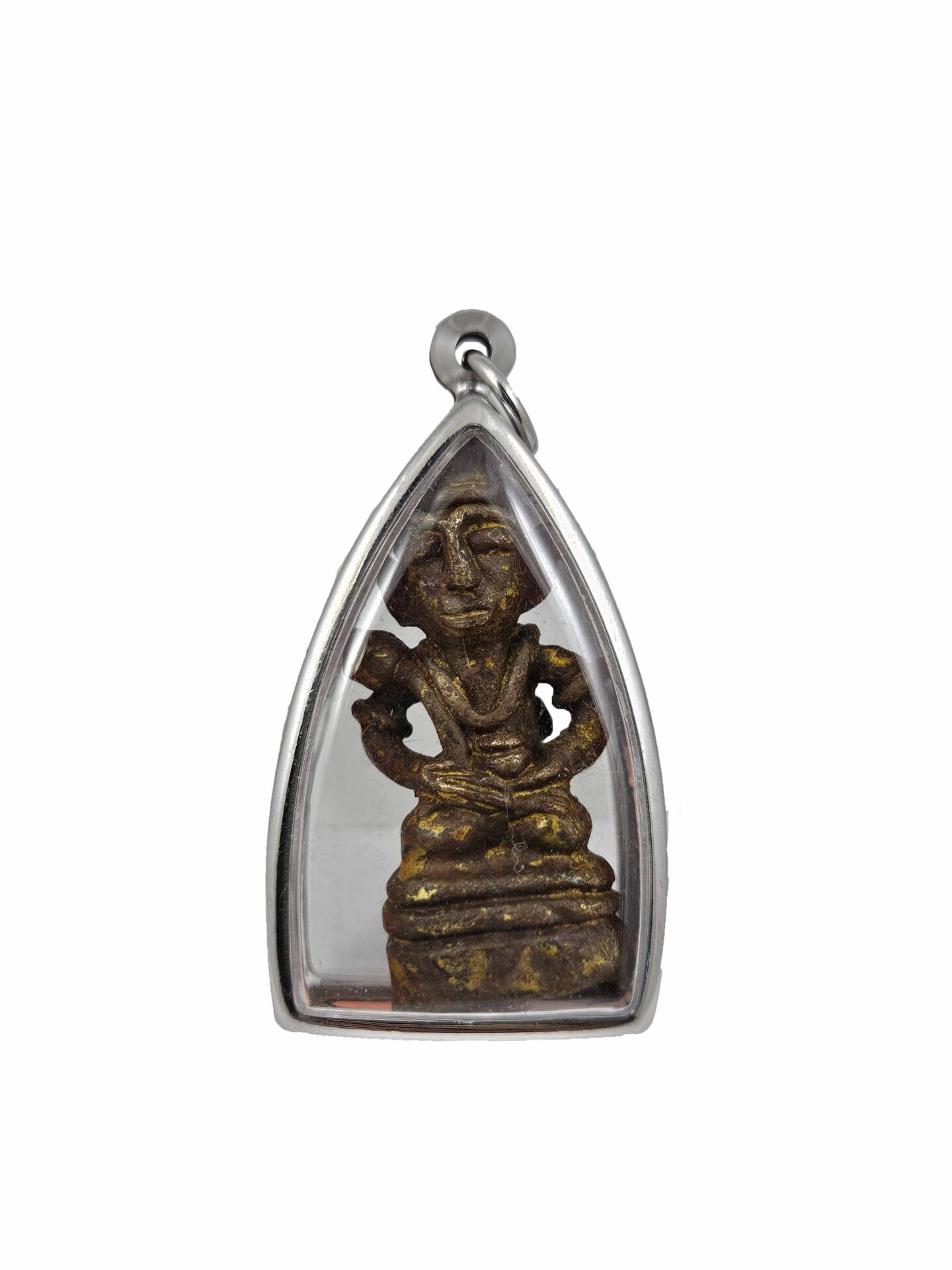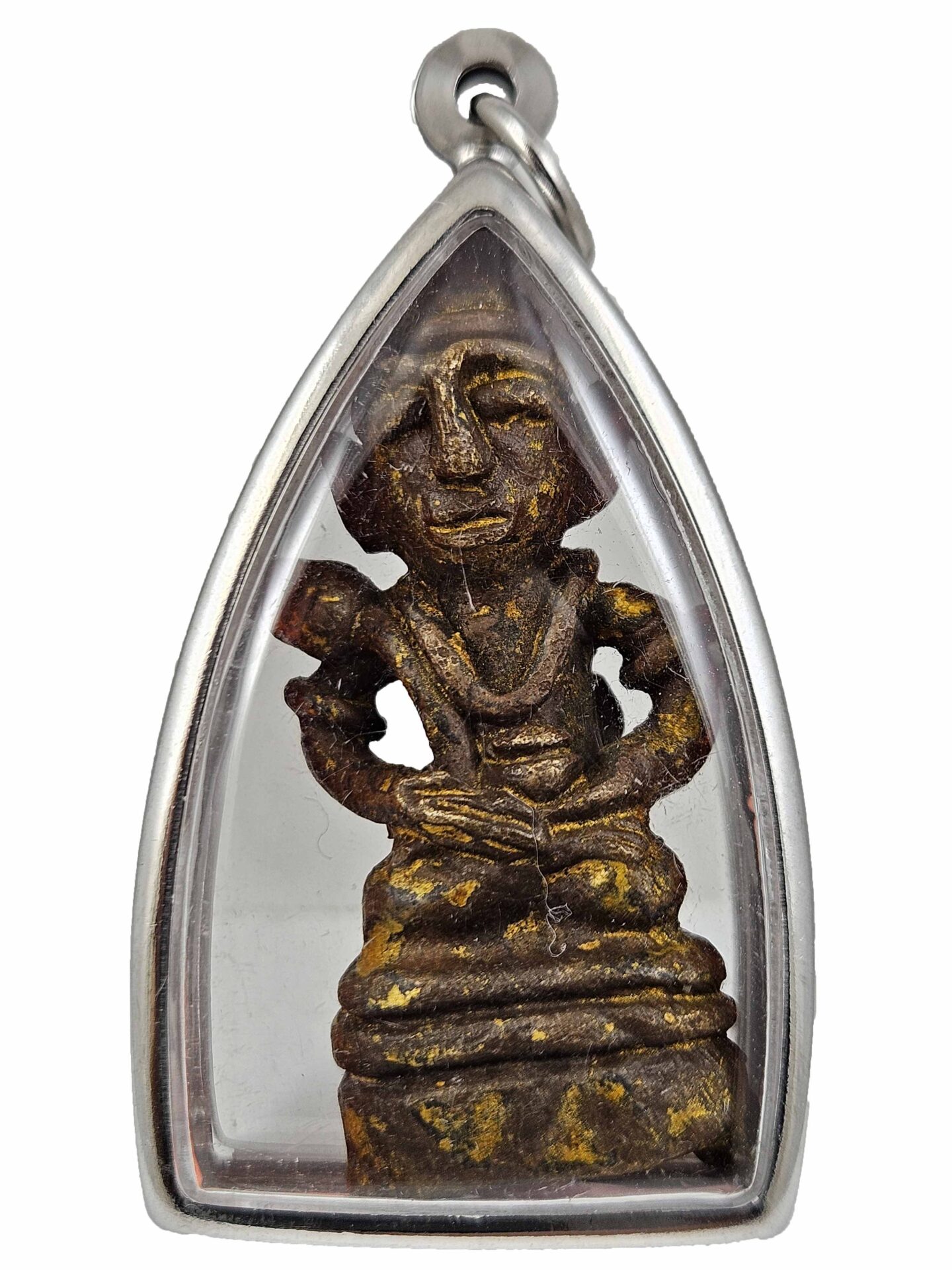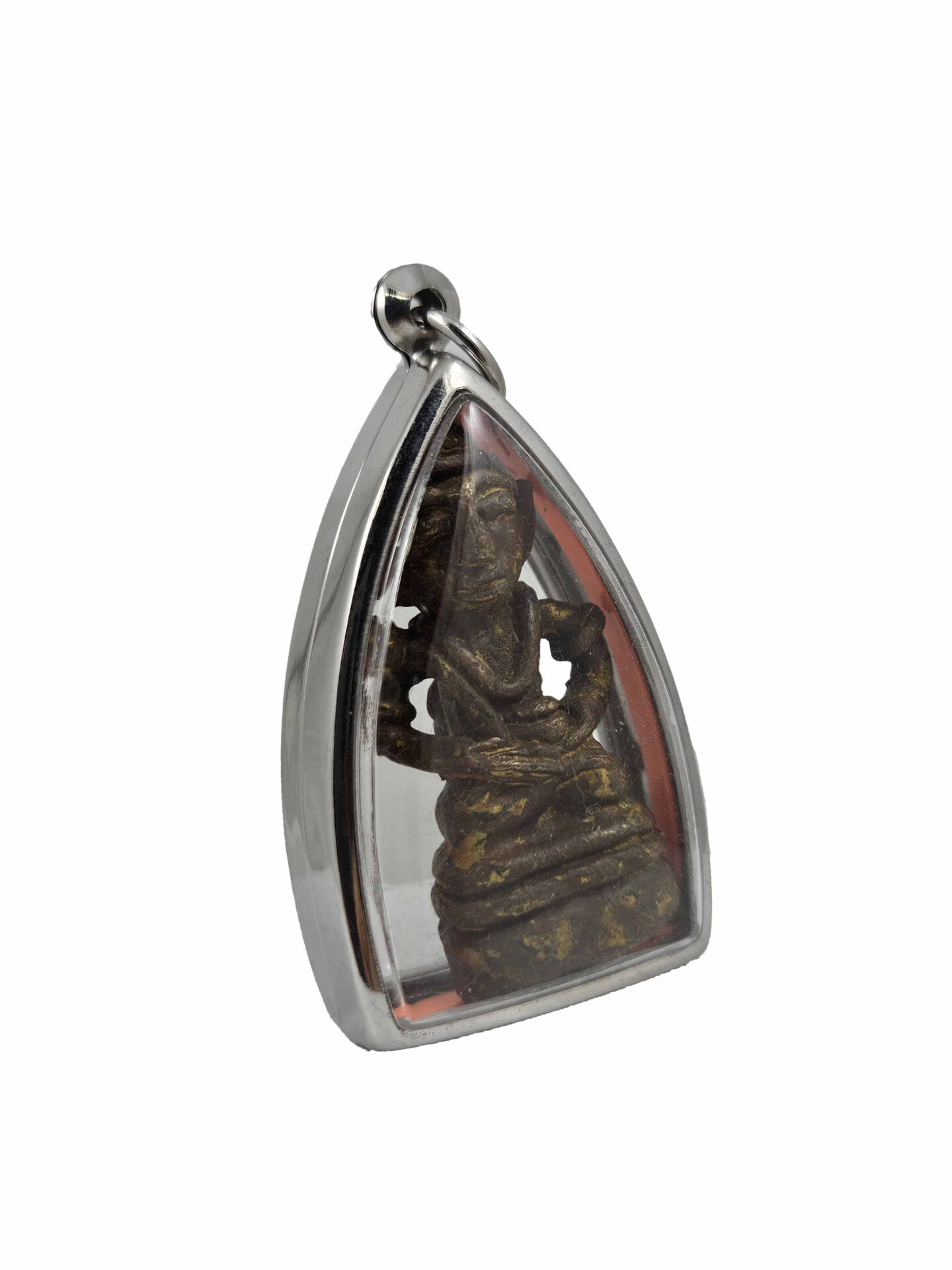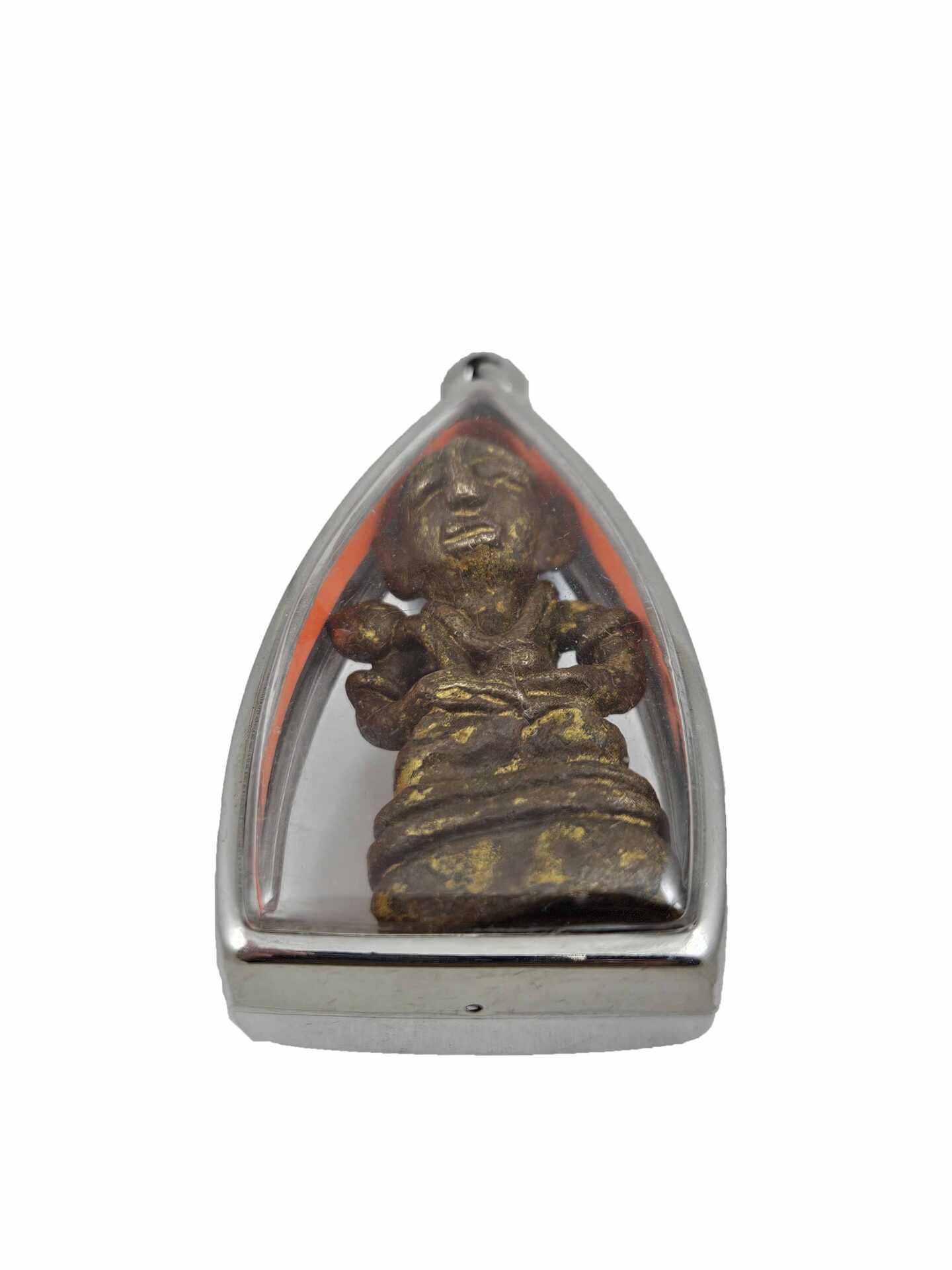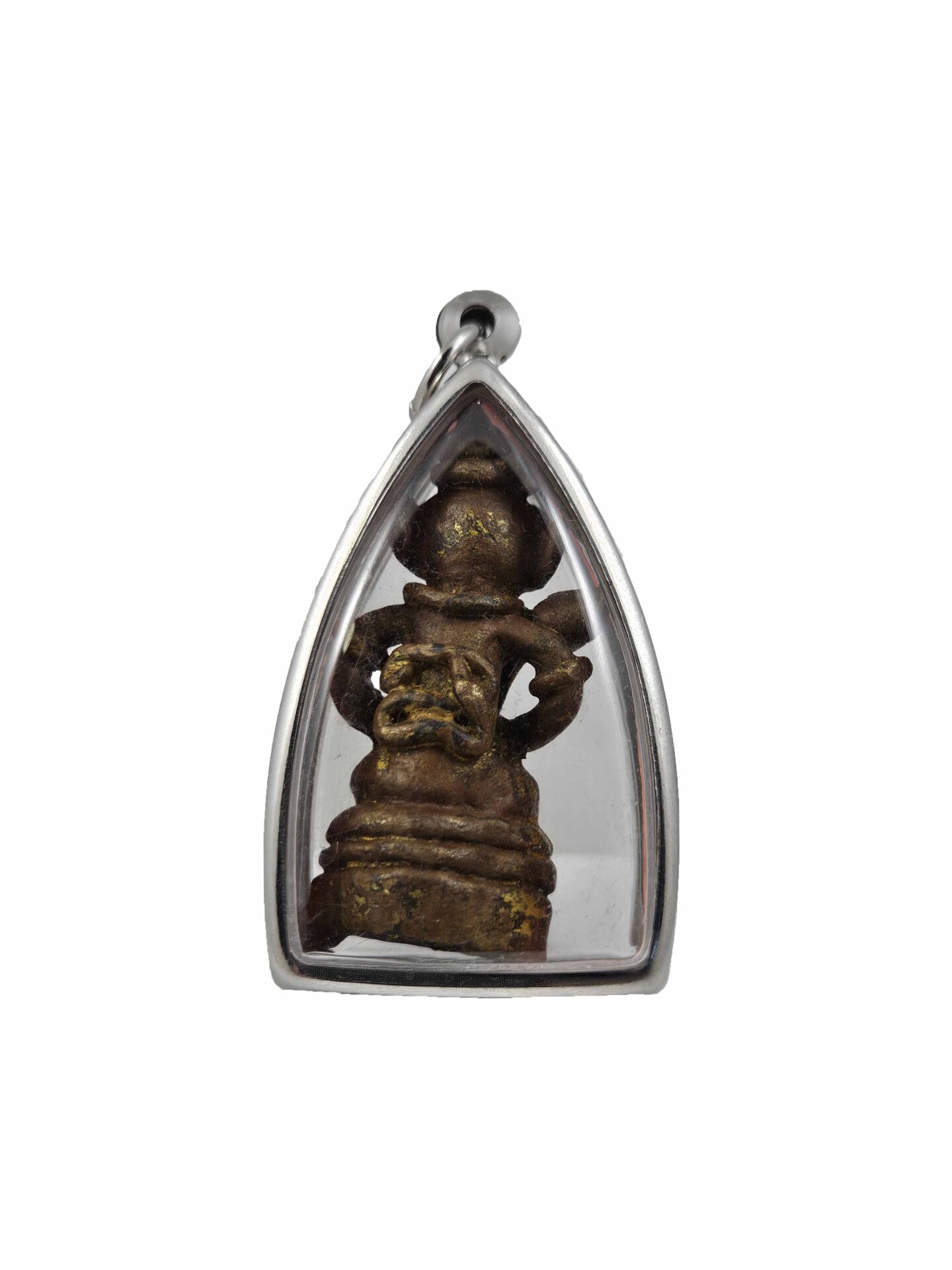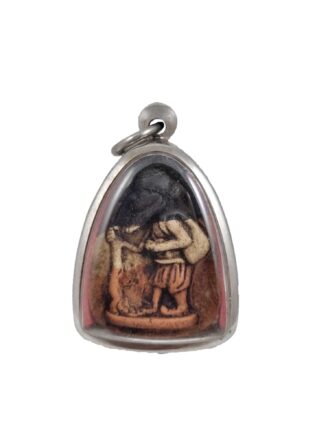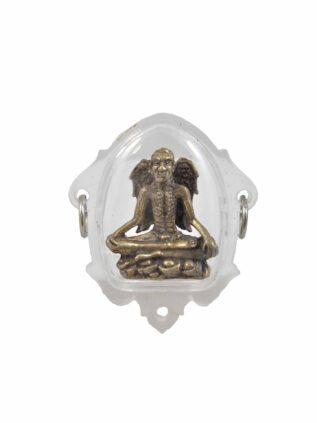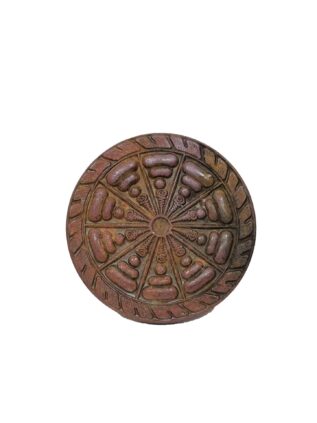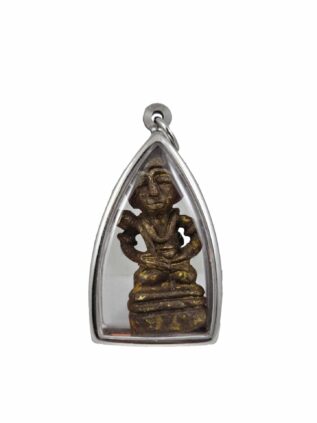Description
Phra Upakut, also spelled “Upagutta” in some contexts, is a revered figure in Theravada Buddhism, especially in Thailand and some parts of Southeast Asia. His origins and significance are rooted in both canonical scriptures and folklore, making him a fascinating blend of tradition and myth.
Phra Upakut’s mention can be traced back to the Pali scriptures. In the “Upagutta Theragatha,” he’s described as an enlightened monk (arahant) who lived during the time of Gautama Buddha. He’s noted for his profound meditation practices and his unwavering commitment to the Dharma. Over time, legends around Phra Upakut evolved, and he became a figure of great mystique in Southeast Asian Buddhist folklore. One popular legend states that after the Buddha’s Parinibbana (final Nirvana), Phra Upakut took residence in the middle of the ocean, meditating in a lotus and remaining unaffected by the surrounding waters. This image symbolizes his deep meditation prowess and his transcendence over worldly concerns.
In Thai culture, Phra Upakut is often invoked for protection, especially from water-related accidents and dangers. Given his legendary abode in the ocean, he is seen as a guardian against water spirits and mishaps.Certain Thai festivals and rituals involve paying respects to Phra Upakut. Devotees often release small boats or rafts with candles, incense, and flowers into water bodies, seeking his blessings and protection.
Phra Upakut’s veneration showcases the richness of Buddhist traditions in Southeast Asia, where canonical scriptures and local folklore intermingle. This blend gives birth to traditions and beliefs that are both spiritually profound and culturally significant. Whether seen as a historical monk or a guardian of the waters, Phra Upakut’s legacy in the Buddhist landscape is undeniably impactful.
